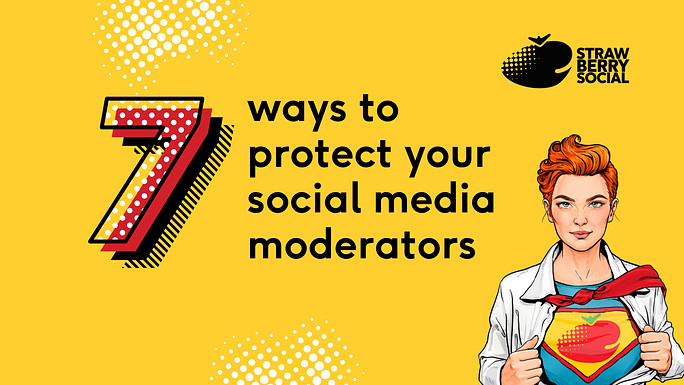Keeping the internet experience enjoyable for countless people, cultures and points of view is tough work. Recent studies have revealed that moderation is a high-stress, high-stakes role – one which requires intense resilience and emotional strength.
Much of this work includes removal of content that we don’t want to think about, let alone experience. We know the internet can bring out the worst in humanity, and moderators are the ones we rely on to diffuse arguments, monitor conversations and report dangerous behaviour. In addition, moderators are also expected to keep calm and carry on.
The journal of psychosocial cyberspace published their 2024 results from research with Community Managers and Moderators; and found that they experienced a range of symptoms similar to first responders such as social workers and EMTs and is consistent with experiencing repeated trauma. In particular, their evidence highlights the fact that
frontline professionals such as first responders have revealed that exposure to other people’s traumatic experiences can lead to post-traumatic stress disorder (PTSD).
In addition to PTSD, they found these workers may experience secondary traumatic stress (STS), vicarious trauma (VT) and burnout.
So, what can you do to protect your moderation team?
As a leader, you genuinely want to do the right thing by your employees. Therefore, keeping them safe both physically, and mentally, is a top priority for you and your Human Resources department. Here are a few best practices to consider:
- Employ somebody in HR that understands the job – we suggest at least one nominated individual who will take on the responsibility, depending on the size of your company. Require the team to meet with the department on a regular basis.
- Create mandatory break times away from moderating content altogether, and only schedule moderation shifts for a maximum of 3 hours in a row.
- Working on other projects is highly recommended; whether it’s handling customer service calls, writing content, engaging the community or helping out elsewhere.
- Have an ‘Employee Assistance Program’. It should offer anonymous, free, online psychological support including therapy 24/7.
- Support your Moderation Management team with special training on how to recognise somebody who may be experiencing PTSD, trauma, or compassion fatigue.
- Ensure your vendor has processes in place for their team. At StrawberrySocial, not only do we have special team training, but we also ensure management are able to recognise burnout and have a system in place to offer our team the support they require. This ensures we take necessary steps to protect our most precious asset – our moderators.
- When interviewing potential team members, be sure to explain the job in detail. They should be well aware of the risks, and be strongly resilient. This should not deter you from creating in-house safety procedures, but it can help with attrition.
Remember – moderators and Community moderation as a profession should be valued throughout your organisation. This team not only protects your brand, but your customers as well. They deserve to be treated with the utmost respect and care so that they can deliver top quality performances for you, day in, and day out.



 August 15, 2024
August 15, 2024  Share This Post
Share This Post